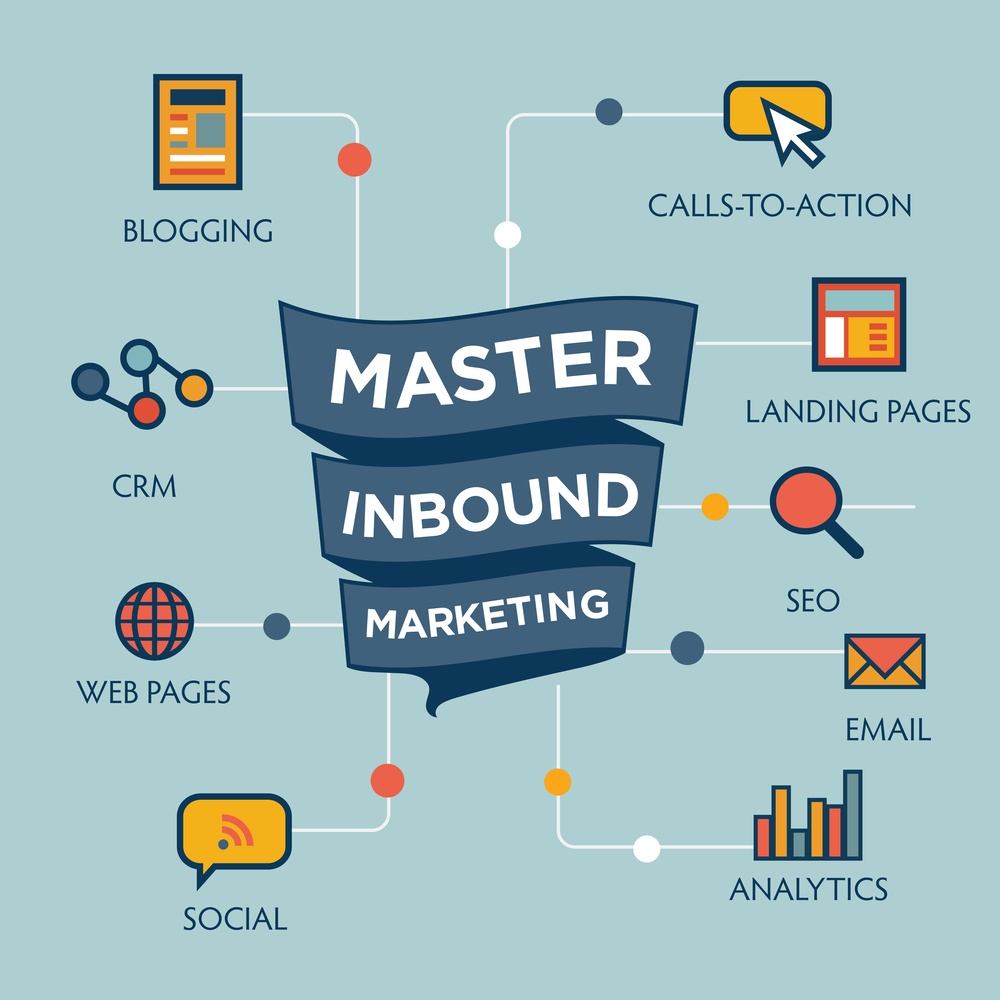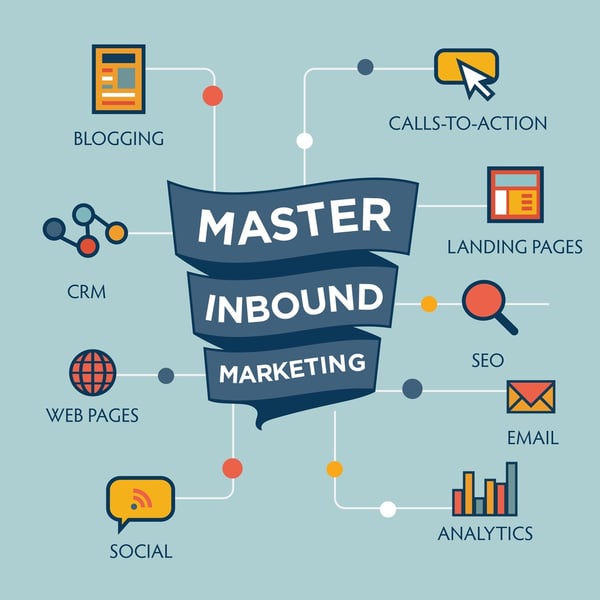
Property Management Marketing Has (Not) Changed: Inbound Still Rules
Listen to the article
Property Management Marketing Has (Not) Changed: Inbound Still Rules
Published July 12, 2018. Updated September 6, 2023.
When we first wrote this blog, the big idea was that outbound marketing was no longer the best way to grow a property management business. Times had changed, and the more effective method for successful property management marketing emerged as inbound marketing.
This was new and different, and we wrote to inform property management companies of this change from old-school marketing thinking.
Today, we're here to tell you that . . . inbound marketing is still the most effective way to generate traffic and high-quality leads to grow your property management company.
That has 'not' changed.
So, today, we revisit that with some crucial updates — this time about how inbound strategies continue to deliver for property managers and how they have changed over time.
Keeping up with what works best today is crucial for a successful strategy!
What Changed Then
If you read this blog the first time around, we talked about pop-up ads. Following the invention of pop-up ads, internet users were at war with internet advertisements.
Pop-up blockers came along to minimize the disruption on screens. However, these ad blockers cut into revenue for marketers, so advertisers invented the auto-playing video . . . and so on and so forth.
Today, over 27% of Americans use an ad blocker, and Google's Chrome browser blocks ads automatically. These ads (and other types of outbound tactics) are no longer as effective as they once were and often fail to deliver the ROIs that company owners and CEOs like to see.
It seems clear that the consumer is fed up with the way ads are served to them — and pop-ups are just one example of outbound advertising efforts that disrupt and interrupt consumers to the point that they will buy a competitor's brand if their ads are less annoying.
So, inbound marketing came on the scene. It takes a different approach than interruption marketing, and that's led to some pretty significant success.

What is Inbound Marketing?
One of the most notable differences between inbound and outbound marketing is the approach to customers.
Outbound marketing is the old way, where ads are blasted out to anyone, meant to interrupt the customer and make them pay attention. They're sent outbound, and the customers have no way of interacting with the ads.
However, inbound marketing seeks to bring customers to them, using SEO (search engine optimization), social media, blogs, podcasts, email newsletters, or eBooks and content offers.
This content is shared and passed along, referring people to your property management website to generate sales. Inbound marketing is meant to answer the questions that customers are asking online, allowing the customer to find the information they need.
This marketing method builds relationships that property management company sales teams can then nurture into new customers and ongoing customer relationships. This is one of the many reasons it's still effective today!
There are a lot of moving parts involved in inbound marketing.
There needs to be a focus on SEO, blogging (or other SEO content creation), and a social media presence to tie everything together. Ideally, content marketing should engage the consumer, who will, in turn, cause them to seek out more of your content.
Let's talk about three primary benefits of inbound marketing strategies.
1. Business Owners are in Charge of Their Content
What do we mean by this? You get to create content that sets you up as the property management authority in your market, address customer pain points with helpful solutions, and attract and nurture leads into loyal fans and customers.
For example, a woodworking business might blog about its process of creating a chair. They could pair that with a Facebook or Instagram account with pictures of the finished product, a link to their other work, and a way to order.
Property management companies can offer tips to would-be landlords to show their expertise and create a relationship the customer will remember when they decide to have a professional company manage for them.
No matter the size of the business, anyone can operate a small social media presence to promote content, engage with customers, and lead traffic to their website.
With optimized, helpful content, potential customers can find your business through online searches SEO. If your company has a blog to educate customers about property management and how you can help, they can share it with their friends to bring in more businesses with a strong call to action.
2. Inbound Marketing Saves Money
Outbound marketing relies on catching someone's attention and keeping mindshare for a later date when a customer will need the product. Between billboards, posters, radio, TV, and online ads, outbound media has to cover a lot of bases, and the costs of ads continue to get higher as media becomes more expensive and available ad spaces decrease.
However, inbound marketing relies on customers who are already looking for the product, so there's no need for broad coverage. Businesses can save money by hiring marketing companies that specialize in digital content marketing and SEO that target your ideal buyers instead of using the less effective traditional advertisement.
Your company owner or CEO will like the return on investment for inbound strategies compared to the high cost per lead that comes with outbound ads.
3. You Build Relationships
There's a higher degree of interaction between businesses and customers with inbound marketing.
Customers seek out a product or service online, find a business's website, and read their content. If the business's posts are educational, they'll be established as experts, and customers will be more likely to trust them. This leads to purchases and recommendations to their friends.
In stark contrast is an ad blasted out to anyone who will listen. Ads, by nature, can't be very informative, are "salesy," and go for the sale right off the bat. However, most customers need time to build trust in your company, need to feel confident that you're an expert, and need nurturing to go from not knowing anything about you to trusting you with their rental properties and financial success through real estate.
Inbound marketing sets that foundation to inform, educate, build trust, and ultimately bring customers to you.
The Future of Property Management Marketing (Is Already Here)
The internet has changed how we buy products, consumer behavior, and how we market. Inbound marketing uses the strengths of the internet to reach consumers who want to be reached.
In the age of the ad blocker, consumers have spoken. They don't want advertisements intruding on their content. They prefer to search for the products or services they need, find helpful information, and ask friends for recommendations.
Inbound strategies, as the core of your property management marketing efforts, allow customers to find your property management services based on need. The overhead is less than outbound marketing, which fights for a slice of limited consumer attention and delivers subpar results.
So, if you're looking for growth, inbound is the way to do it. This was true a few years ago when we first wrote this blog. We've seen that it's still true today (more than ever before), and we don't anticipate that changing any time in the near future. If this update has you ready to get into it, Geekly Media can help!
Learn how to review your operations, finances, and marketing plan while creating a game plan for success at our newly launched Gameplan 101 page. Overwhelmed? Contact Geekly Media, and we will create a Game Plan for you.


-1.png)
